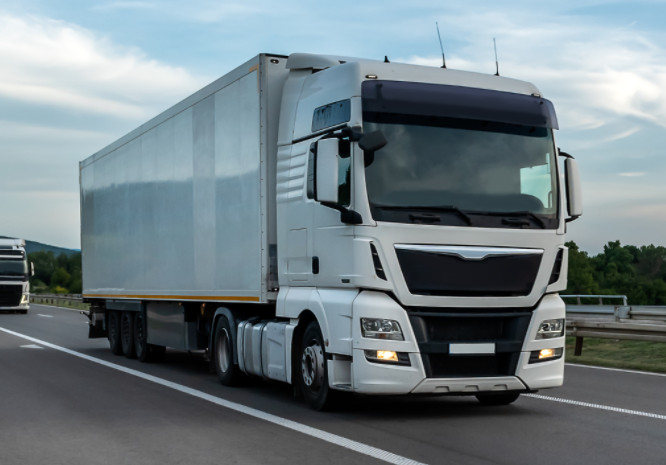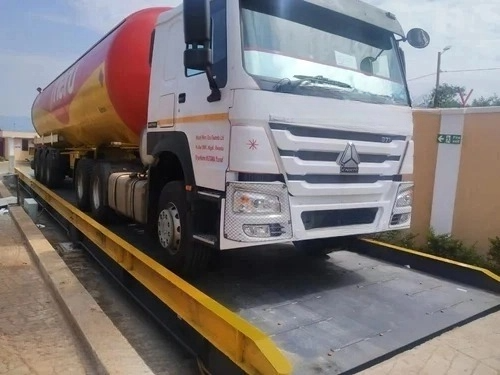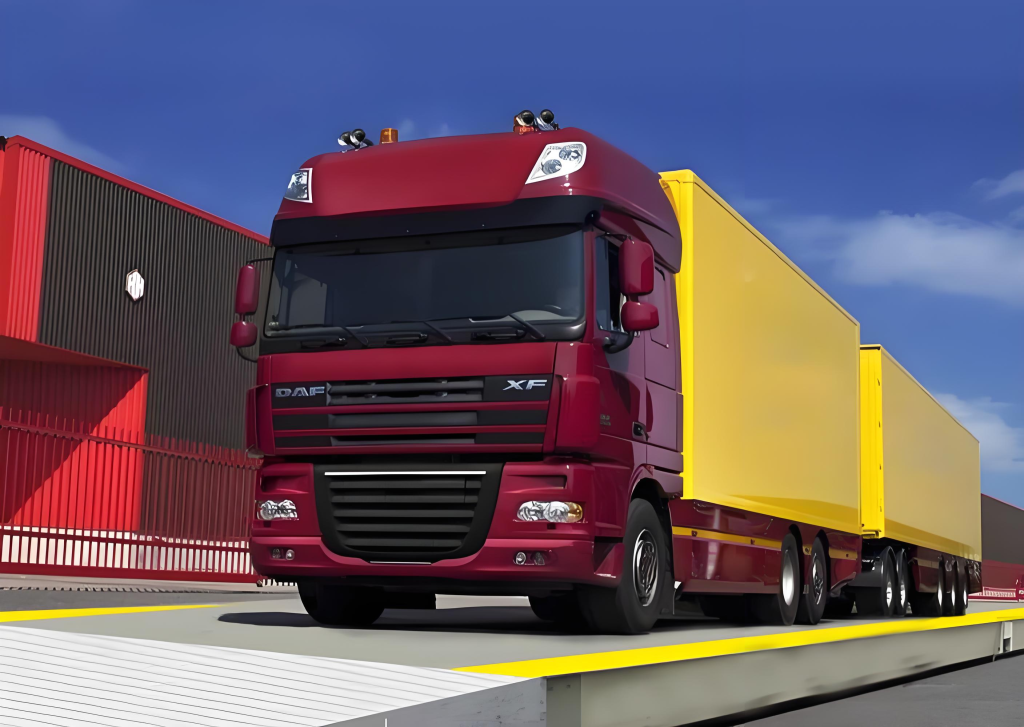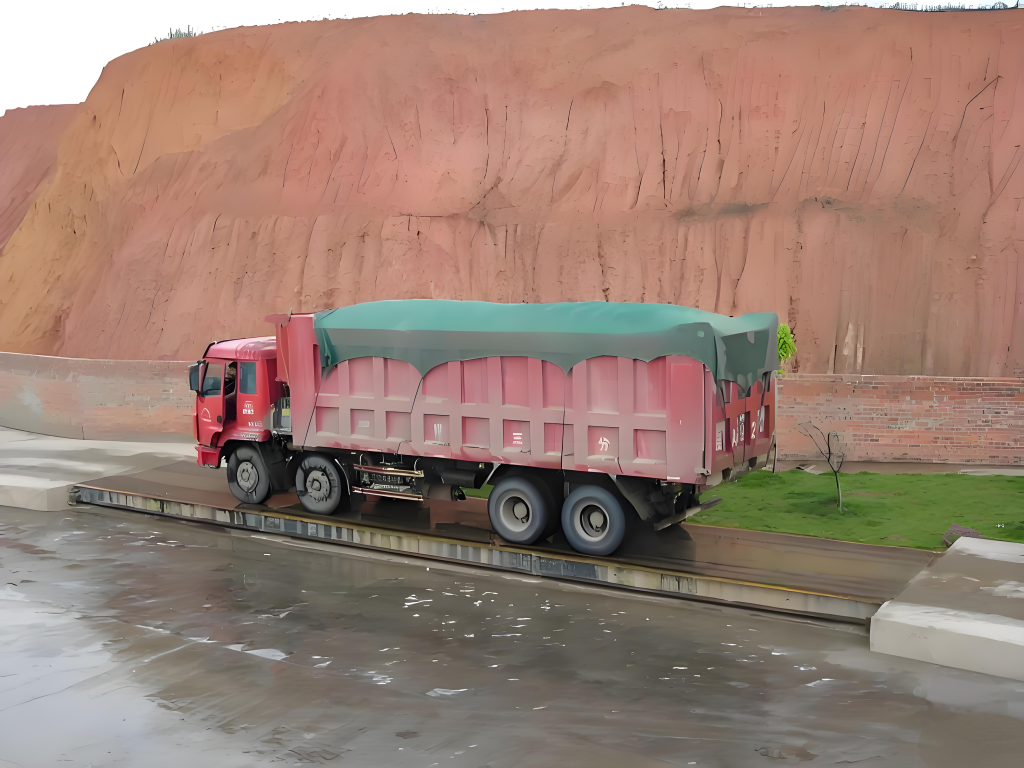How to Choose the Perfect Fit Truck Scale for Your Needs?
In industries reliant on transportation and logistics, investing in the right truck scale is paramount. Whether you’re managing a bustling warehouse, a busy distribution center, or a thriving manufacturing plant, selecting the perfect fit-size truck scale can streamline operations, enhance efficiency, and ultimately drive bottom-line results. But with a plethora of options available, how do you navigate the selection process? Let’s delve into the key considerations to help you make an informed decision.
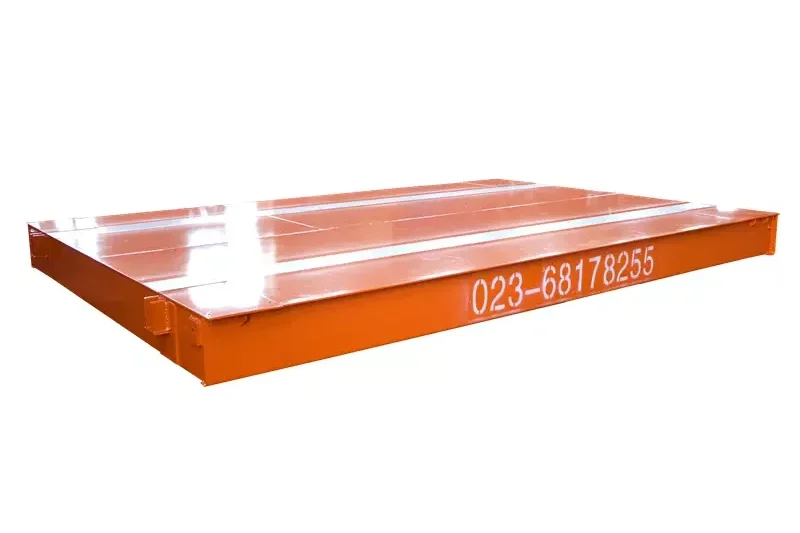
Know Your Truck Scale Capacity
When it comes to selecting the perfect truck scale for your business, one of the fundamental considerations is understanding your truck scale capacity requirements. This crucial aspect sets the foundation for the entire selection process, ensuring that the scale you choose can effectively handle the weights of your vehicles while providing accurate and reliable measurements.
- Evaluate Your Weighing Needs: Before you can determine the ideal truck scale capacity, it’s essential to assess your specific weighing needs. Consider the types of vehicles you’ll be weighing, the frequency of weighing operations, and the range of weights typically encountered. This comprehensive evaluation will help you establish a baseline for the capacity requirements of your truck scale.
- Consider Maximum Load Scenarios: While it’s essential to consider the average weights of your vehicles, it’s equally important to account for maximum load scenarios. Factor in any potential variations in weight, such as seasonal fluctuations in cargo or occasional oversized loads. By planning for these maximum load scenarios, you can ensure that your truck scale has sufficient capacity to handle even the heaviest loads without compromising accuracy or safety.
- Plan for Future Growth: As your business expands and evolves, so too may your weighing needs. When determining your truck scale capacity requirements, it’s wise to plan for future growth and scalability. Consider factors such as anticipated increases in vehicle fleet size, changes in cargo volume, or potential shifts in operational requirements. Choosing a truck scale with ample capacity to accommodate future growth can help future-proof your investment and minimize the need for costly upgrades down the line.
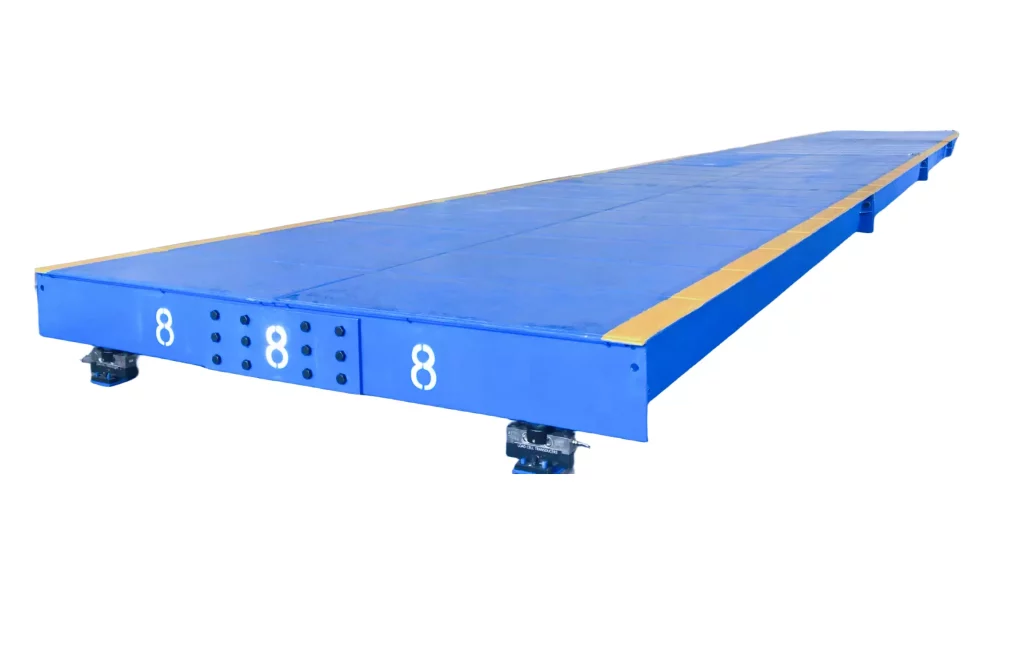
Sizing Up Platform Dimensions of Truck Scale
The platform dimensions of a truck scale refer to the length and width of the weighing surface where vehicles are positioned for measurement. These dimensions are pivotal because they determine the scale’s capacity to accommodate different vehicle sizes and configurations. Here’s why sizing up platform dimensions is crucial:
- Accommodating Vehicle Sizes: Trucks come in various shapes and sizes, from compact delivery vans to massive tractor-trailers. A truck scale with inadequate platform dimensions may struggle to accommodate larger vehicles, leading to inaccurate measurements or potential damage to the scale.
- Ensuring Maneuverability: When weighing vehicles, it’s essential to ensure ample space for maneuverability. A scale with cramped platform dimensions may impede the driver’s ability to position the vehicle accurately, resulting in skewed measurements or safety hazards.
- Considering Load Distribution: Some truck scales feature multiple weighing platforms to measure individual axles or wheel groups separately. The dimensions of these platforms must align with the spacing of the vehicle’s axles to provide accurate weight distribution data.
Choosing the Right Platform Dimensions
Now that we understand the significance of platform dimensions let’s explore how to choose the right size for your truck scale:
- Assessing Vehicle Types: Begin by analyzing the types of vehicles that will be weighed on the scale regularly. Consider the length, width, and wheelbase of these vehicles to determine the minimum platform dimensions required to accommodate them comfortably.
- Anticipating Future Needs: Plan for future growth and changes in your operations when selecting platform dimensions. Opt for dimensions that not only meet your current requirements but also provide room for expansion and accommodate larger vehicles that may be added to your fleet down the line.
- Considering Safety and Accessibility: Ensure that the chosen platform dimensions allow for safe and easy access for drivers and operators. Adequate space around the scale facilitates smooth ingress and egress, minimizing the risk of accidents or injuries during weighing procedures.
- Customization Options: Many truck scale manufacturers offer customization options, allowing you to tailor the platform dimensions to your specific needs. Take advantage of this flexibility to design a scale that perfectly aligns with your operational requirements and spatial constraints.
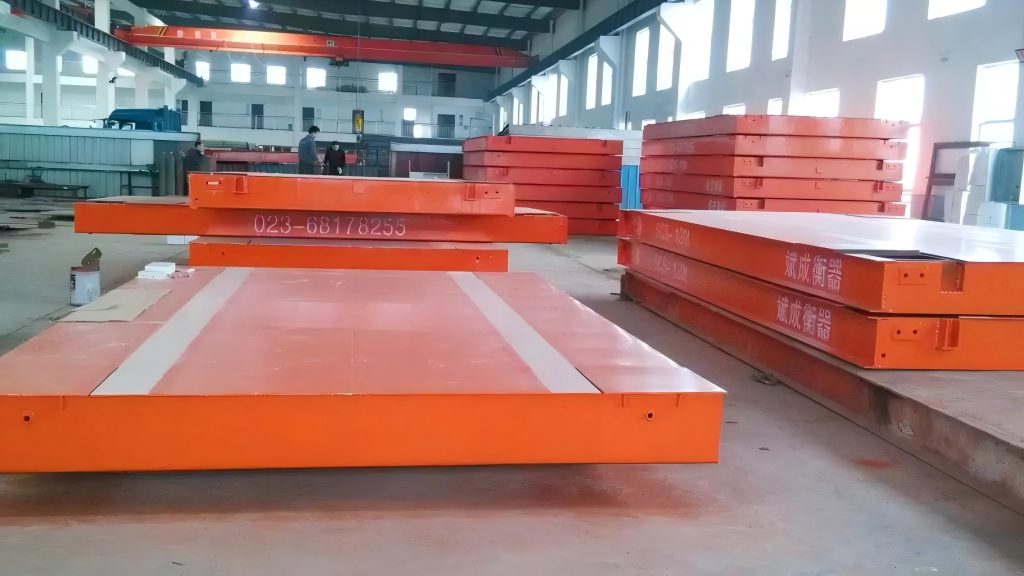
Additional Factors Need To Consider
While capacity and platform size are foundational elements, a truly perfect fit truck scale goes beyond these basics. Here’s a deep dive into additional factors that can significantly impact your choice and optimize your weighing operations:
Traffic Flow and Efficiency
- Number of Weighing Lanes: If you have a constant stream of trucks coming in and out, consider a platform with multiple lanes to expedite the weighing process. This can significantly improve throughput and reduce wait times.
- Traffic Patterns: Think about the typical flow of traffic on your site. Will trucks be entering and exiting in the same direction, or will they need to maneuver around the scale? A longer platform can accommodate multi-lane traffic flow and smoother maneuvering.
- Integration with Weighbridge Software: Explore truck scale software that can automate the weighing process, capture data efficiently, and generate reports for weight certification and inventory management. This can streamline operations and minimize errors.
Site Considerations and Installation
- Available Space: Carefully measure your designated area for the truck scale to ensure proper installation. Factor in space for trucks to enter, exit, and maneuver around the platform.
- Ground Conditions: The type of soil on your site will influence the weighbridge foundation requirements. Consult with a qualified installer to determine the best foundation type (e.g., concrete pit, steel deck) for optimal scale performance and longevity.
- Permits and Regulations: Ensure you obtain any necessary permits for installing and operating a truck scale in your location. Research local and national regulations regarding weight certification requirements for your industry.
Long-Term Considerations
- Durability and Maintenance: Truck scales are subjected to heavy loads and constant use. Choose a scale built with robust materials and a design that facilitates easy maintenance. Consider factors like weighbridge deck materials (concrete, steel), load cell quality, and ease of access for cleaning and repairs.
- Scalability and Future Needs: Think about your business’s potential growth. Will your future operations require weighing heavier loads or larger vehicles? Opting for a scale with a slightly higher capacity or a modular platform design that can be expanded upon can save you the cost of replacing the entire scale down the line.
- Customer Support and Service: Reliable after-sales support is crucial. Choose a truck scale manufacturer or distributor with a reputation for excellent customer service and readily available technical assistance. This ensures prompt troubleshooting and minimizes downtime in case of any issues.
BINCEN: Reliable China Truck Scale Manufacturer
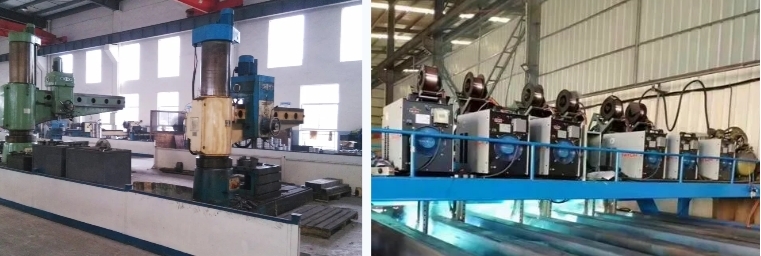
When it comes to sourcing high-quality truck scales, Bincen stands out as a trusted truck scale manufacturer in China. With a reputation for excellence and reliability, Bincen offers a wide range of truck scales tailored to meet diverse industry needs. From weighbridges to axle scales, our products are built to deliver precision, durability, and long-term value.
With BINCEN, you can expect:
- Cutting-edge technology: BINCEN integrates advanced weighing technology into their scales, ensuring precise measurements and efficient operations.
- Customization options: Whether you require specific platform dimensions or specialized features, BINCEN can customize a truck scale to suit your unique requirements.
- Exceptional reliability: BINCEN’s commitment to quality craftsmanship and rigorous testing procedures ensures that their truck scales perform reliably in any environment.
- Expert support: With a team of experienced professionals, BINCEN provides comprehensive support and guidance to help you choose the perfect truck scale for your needs.
In conclusion, choosing the perfect fit truck scale involves understanding your capacity requirements, sizing up platform dimensions, and considering additional factors such as construction, technology, and environmental conditions. With Bincen as your trusted partner, you can confidently invest in a truck scale that meets your needs for accuracy, durability, and reliability.

